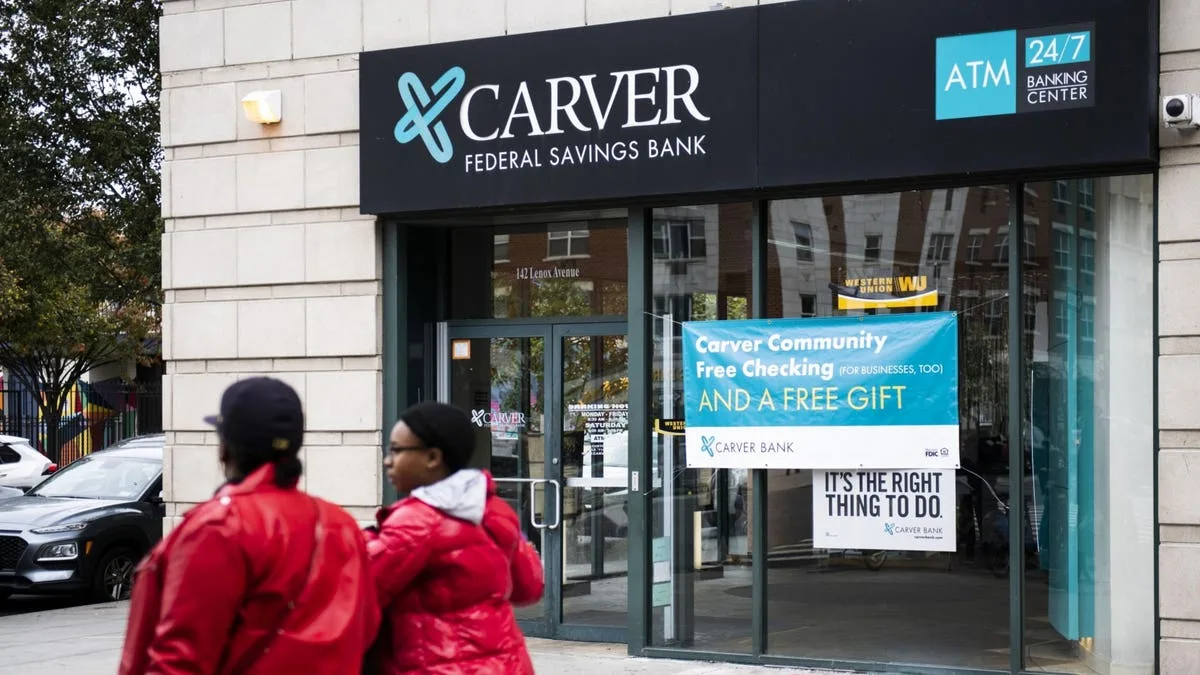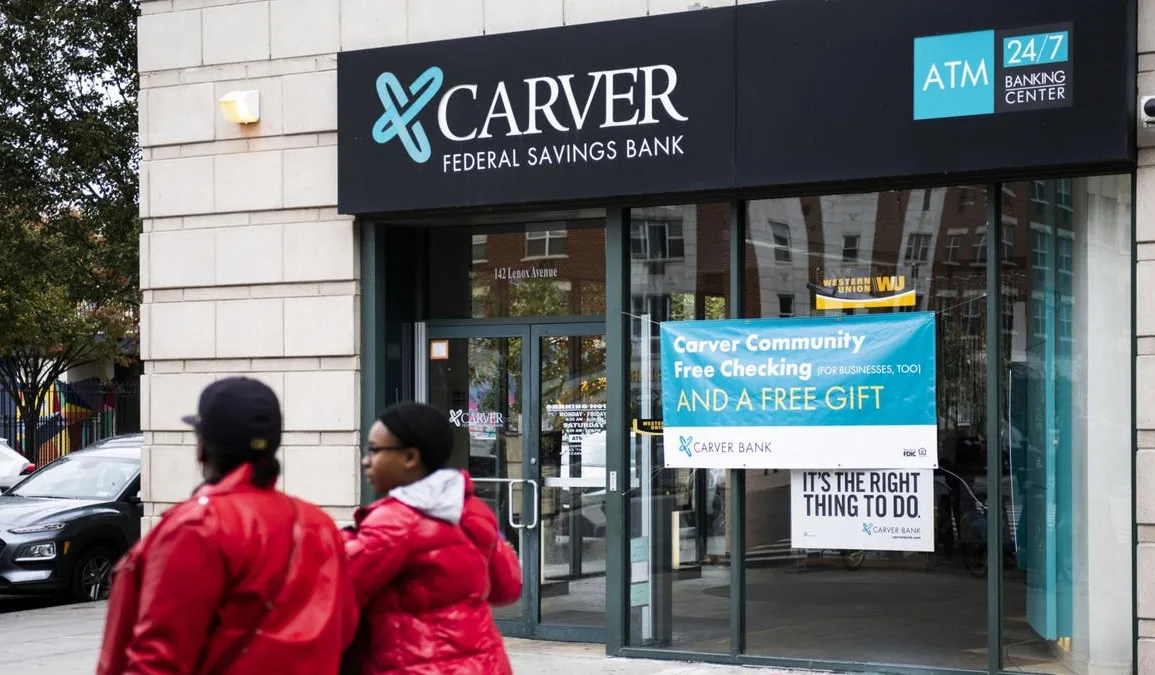
Don’t overlook community financial institutions, says Michael Pugh of Carver Federal Savings Bank.
With interest rates at a 22-year high, Michael Pugh says Black business owners crunched for cash should look to community-based financial institutions for help.
“Learn more about them; we have a very different scope [regarding loan arrangements],” Pugh, the CEO of New York-based Carver Federal Savings Bank, tells Forbes of community banks. “We have to make sure we extend our arms and get out there and tell people what they need to know to start achieving that generational wealth.”
August is National Black Business Month, and ForbesBLK is highlighting the theme with special discussions about sustaining and expanding Black firms. Based in Harlem, Carver is one of the largest Black-run financial institutions in the U.S., celebrating its 75th anniversary in 2023. The bank is named after George Washington Carver and trades on the NASDAQ. Pugh was named CEO in 2012.
Black businesses generated $206 billion in annual revenue and supported 3.56 million U.S. jobs in the last decade, according to the non-profit Brookings Institution. However, though Black people comprise 14.7% of the U.S. population, the community represents 12.4% of sole proprietorship and only 2.4% of employer businesses. Brookings said the stats show “disparities” that hold back Black entrepreneurs and “restrict economic opportunities for entire communities, which in turn impacts local prosperity.” Brookings also notes that access to sufficient capital remains a lingering issue for Black-owned businesses. That causes entrepreneurs to rely on personal funds and credit cards to finance operations.
Pugh suggests owners tap into local Community Development Financial Institutions that receive money from the Treasury Department’s CDFI Fund. The CDFI fund started in 1994 and has grown to over $7.4 billion in grants awarded to eligible institutions like Carver Federal. The fund aims to promote economic activity and help support small businesses, especially during economic turmoil, by offering favorable, non-debt-punishing loans.
In July, the Federal Reserve increased interest rates to 5.5%, a 22-year high. Rising rates can negatively impact small businesses, especially Black firms, that lack capital because it can pressure margins, threatening sustainability. “It’s a matter we’ll all have to pay close attention to,” Pugh says. “Financial institutions have a responsibility to come up with access to capital that doesn’t drive an entrepreneur to use their personal credit card at a much higher interest rate.”
The banking sector is recovering from a crisis following the failure of First Republic Bank in May. JPMorgan Chase eventually purchased the bank’s assets. Still, the stability of commercial real estate loans will play a critical factor in long-term recovery. Total commercial real estate loans held by banks is $2.9 trillion, according to the Federal Reserve Bank of St. Louis. Meanwhile, Carver reported about $177.7 million in commercial mortgage loans on its books in March — nearly 30% of its total loan portfolio. Still, Pugh echoed Fed Chair Jerome Powell’s July comments about the banking sector, telling Forbes the atmosphere is “stable for now.”
View the video for more from Pugh’s discussion with Forbes during Black Business Month.
ForbesBLK Newsletter: Click to subscribe
Forbes


